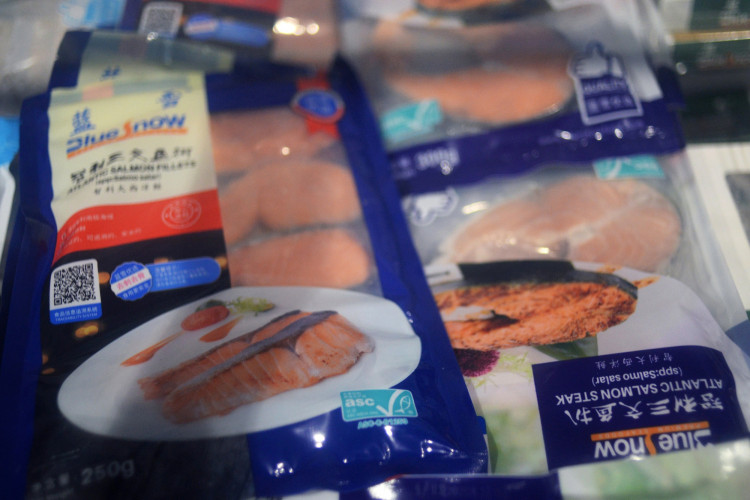China has temporarily halted the importation of European salmon and other seafood amid fears that the products could be the source of a new coronavirus outbreak in the nation's capital. Seafood traders and importers are reportedly bracing for a possible dip in consumption due to fears fueled by speculation.
Health authorities reportedly found a strain of the coronavirus on chopping boards used by sellers at Beijing's Xinfadi market, which had then been linked to a new cluster of infections. However, experts have pointed out that there is still no proof that the fish imported from aboard were the source.
The European Commission mentioned in an interview that Beijing had not formally issued a ban or import restriction and they are still monitoring the situation. Traders in Europe have confirmed that their buyers in China have halted all orders of fresh products temporarily pending the outcome of the investigations on the new cluster of infections. European air freight carrier Cargolux had revealed in an internal memo that there is a standing ban on all perishable shipments in major Chinese ports.
Norwegian Seafood Council director in China, Victoria Braathen, stated that authorities have yet to contact them or make a formal statement regarding the new outbreak. Braathen did add that the Norwegian Food Safety Authority has clarified that there are no known cases of viral transmissions via food or water and their seafood imports remain safe.
The deputy director of the emergency center at the Chinese Centre for Disease Control and Prevention, Shi Gouqing, had mentioned on Tuesday that they have yet to find evidence to confirm whether or not the imported salmon was the host of the disease. He added that the virus was not detected in any of the fish before they were sent to the contaminated market.
Despite the statements made by experts debunking the notion, health authorities in China are not taking any chances. For now, imported meats and seafood products have been removed from major supermarkets across the nation while authorities conduct tests for traces of the coronavirus. While health experts have mostly assured the public that consuming imported seafood from Europe is safe, it may still take some time before Chinese consumers begin eating them again.
European trade officials have expressed concerns over the possible implications of the case, stating that the "government-fueled" hysteria may negatively affect industries. An official, who did not want to be named, reasoned that some people could be led to believe that products imported from Europe are contaminated with the coronavirus. This would pose a major problem for exports and several industries.





